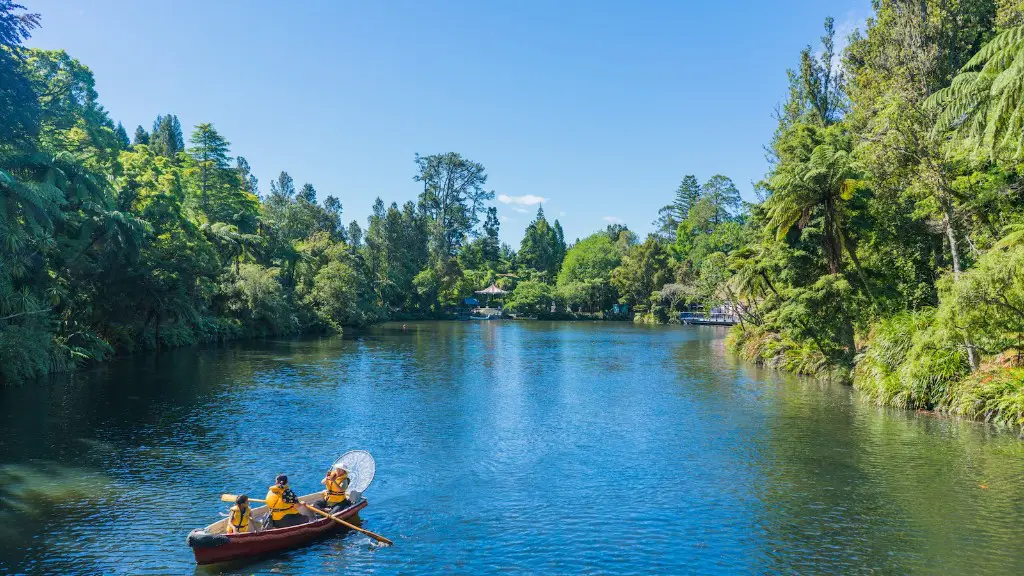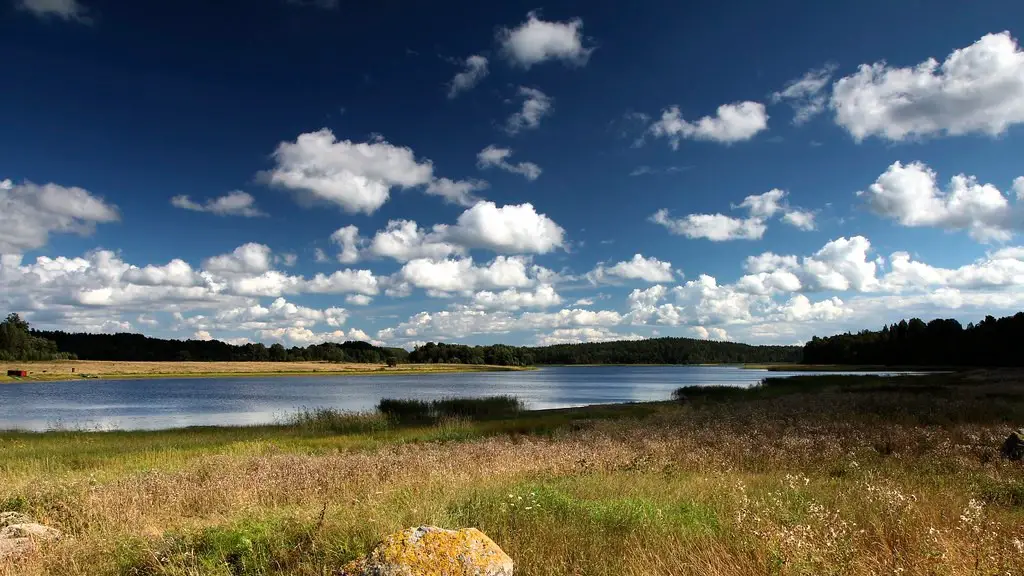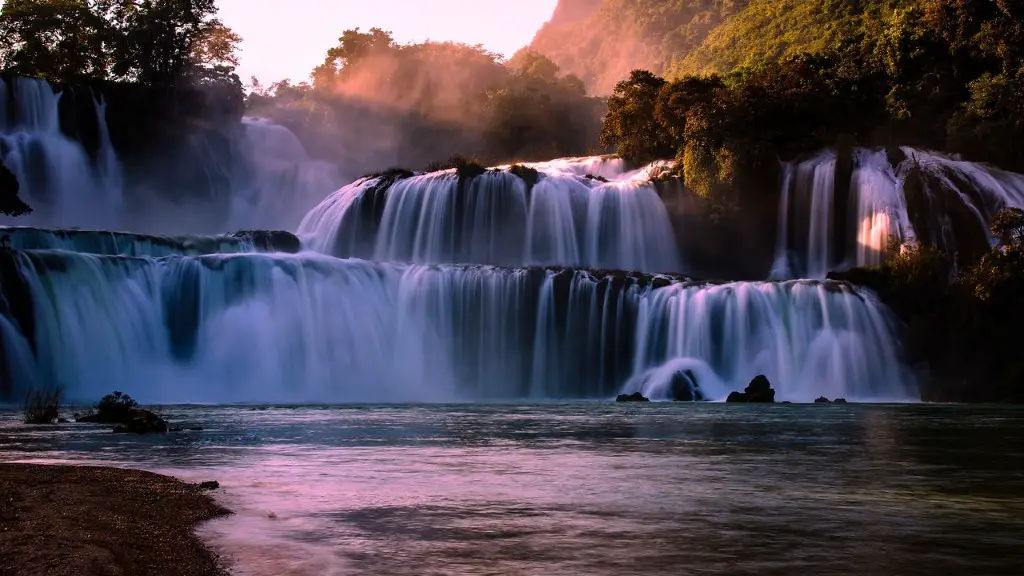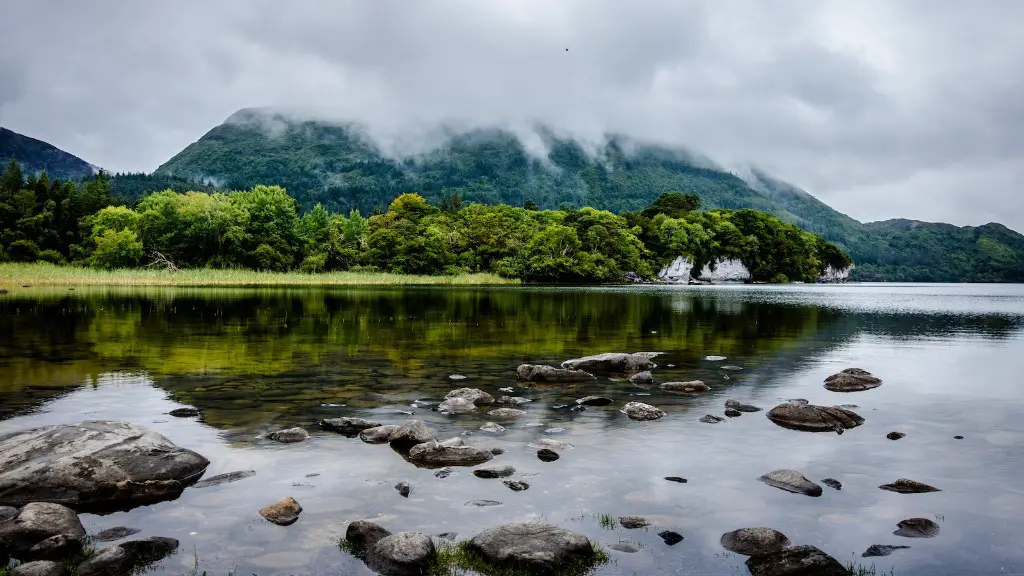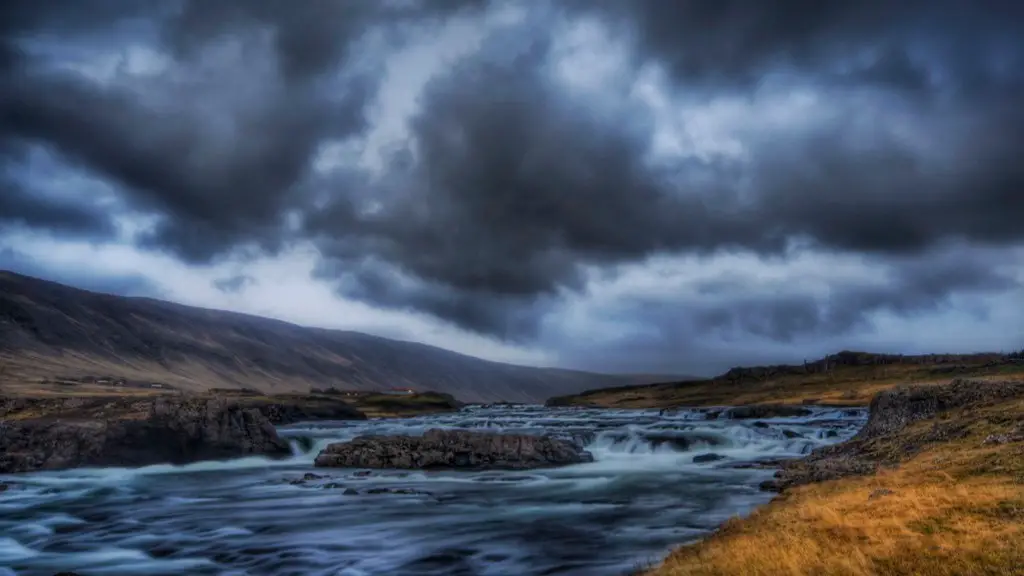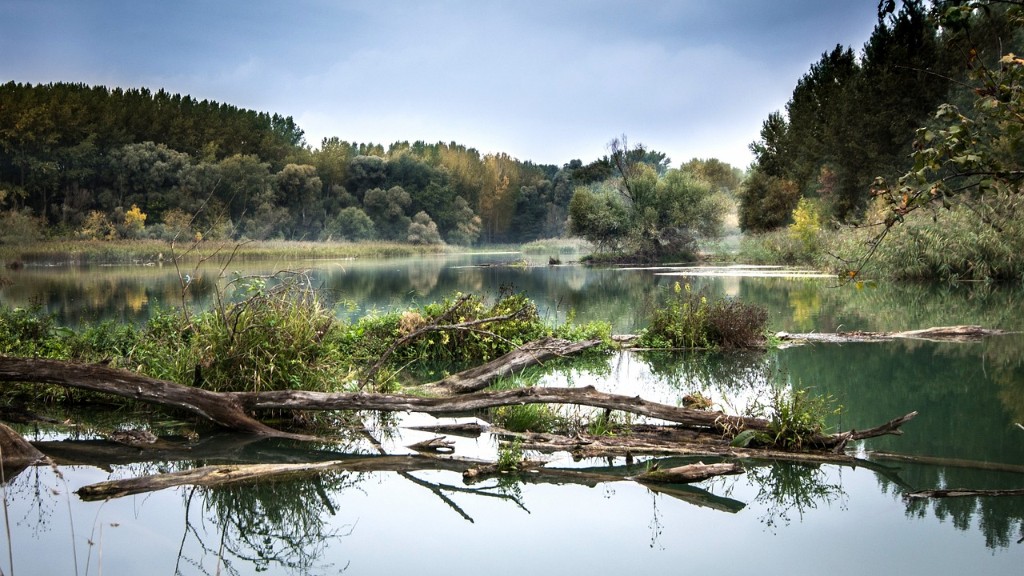The Mississippi River is one of the most important waterways in North America, providing transportation and commerce to numerous states along its course. Despite its importance, many people are unaware of the origin of the name ‘Mississippi.’ The term ‘Mississippi’ is derived from the Anishinaabe Ojibwe word ‘misi-ziibi’ which translates from the Ojibwe language to ‘great river.’
According to historical records, the name ‘Mississippi’ was first applied to the river by French explorer Louis Jolliet in 1673. He and his companion Jacques Marquette had been travelling down the Mississippi River from the Great Lakes to the Gulf of Mexico and had named the river ‘Mississippi’ upon having first encountered it. The name has since been used to refer to the river.
The Mississippi River is the fourth longest river in the United States and was first explored by Europeans in the 1500s. It is the tenth largest river in the world and is the second longest river in North America after the Missouri River. The river is approximately 2,320 miles long and its source is Lake Itasca in Minnesota. The river then drains into the Gulf of Mexico near New Orleans, Louisiana. The river is used extensively for commerce and navigation, with many towns and cities along its course relying on the waterway for their sustenance and economy.
The ‘Nine-Mile Reach,’ an area of the river extending from Minneapolis to St. Paul, Minnesota, is home to a variety of wildlife including bald eagles and great blue heron. The river is home to many species of fish as well, from sturgeon and largemouth bass to walleye, catfish, and carp.
The Mississippi River is renowned for its role in the United States’ history as a symbol of freedom and emancipation during the Civil War. It was also integral to the development of the country, as it was used by many settlers to transport goods and in turn, facilitated the growth of the country’s economy and transportation infrastructure.
The rivers cultural and historical significance combined with its importance for navigation, economics and wildlife make the Mississippi River one of the most important rivers in the United States. Its importance to the economy, culture and history of the entire country cannot be understated and its original name of ‘great river’ aptly describes its importance.
Economic Impact
The Mississippi River is a major transportation corridor for goods and services, making it one of the economic engines of the United States. It is the most active inland navigational waterway in the world and is used to transport more than 60 percent of imported goods and exports, including grain, oil and gas, chemicals, and steel.
The river’s importance is seen in the number of industries it serves, particularly in the agricultural and energy industries. These industries rely on the river for transportation and commercial activities, as well as to provide a source of fresh water. The Mississippi River is also an important source of electrical power, with more than 10 percent of all electricity generated in the United States generated from hydroelectric dams along the river.
The economic impact of the Mississippi River is felt across the United States and even in other countries, with some estimates suggesting that it supports 1.5 million jobs and generates $144 billion in economic activity per year.
Environmental Impact
The Mississippi River also provides many environmental benefits, including the protection of wildlife and habitat. The river and its tributaries provide a crucial refuge for numerous species of fish and mammals, and its wetlands and floodplains are home to a great diversity of flora and fauna. The river is also an important source of fresh water, providing drinking water, irrigation water and vital habitats for numerous species of wildlife.
The river also helps to protect communities along its course by serving as a natural buffer against flooding. By controlling these floods,it helps to protect neighborhoods and cities throughout the Mississippi River watershed. The river and its tributaries are also important for recreation and tourism, with many people visiting the area to take advantage of its majestic beauty, recreational opportunities, and natural resources.
Pollution in the Mississippi River
Despite its importance, the Mississippi River faces numerous environmental challenges from pollution. Runoff from agricultural, industrial and other sources, combined with human activities, have caused serious damage to the river, including the accumulation of nitrogen, phosphorus and other pollutants in the water. As a result of these pollutants, the river has become more susceptible to algae blooms, which have caused decreased oxygen levels and degraded water quality.
The U.S. Environmental Protection Agency (EPA) has identified agriculture and wastewater from municipal and industrial sources as being the leading sources of pollution in the river. To address this issue, the EPA is working with the states in the Mississippi River Basin to reduce water pollution, restore depleted habitats and populations, and improve water quality.
Restoration and Conservation Efforts
The states along the Mississippi River are actively restoring and improving the river’s water quality, habitat, and fish populations. Conservation efforts have been put in place to restore the river’s wetlands and floodplains, protect its riparian habitats, and restore fish and wildlife populations. A variety of projects are also underway to reduce nutrient pollution and improve water quality, such as improved fertilizer management, buffer zone incorporation, and riparian habitat restoration.
In addition, the states in the Mississippi River watershed are working together to develop collaborative solutions to the river’s environmental problems. These efforts include the development of state-specific plans to address water quality and habitat restoration, along with the integration of protection and mitigation measures.
The Mississippi River is one of the most important rivers in the United States, and its importance extends beyond its economic worth. The river’s cultural and historical significance combined with its environmental importance make it a vital resource for the states along its course. Its conservation and restoration efforts are necessary to ensure its longevity and to ensure it can continue to provide economic, recreational and cultural benefits to the region.
Impacts of Climate Change
Climate change has had far-reaching effects on the Mississippi River and its watershed. The most significant impacts have been increased evaporation from the river, increased flood levels and increased sedimentation. There is also evidence that the river’s water temperature has risen, leading to decreased dissolved oxygen levels, which in turn can have detrimental effects on aquatic life.
The economic impacts of climate change are also becoming increasingly apparent. Increased temperatures have made some portions of the river inhospitable to certain crops, while increased flood size and severity have displaced many communities that rely on the river for their livelihoods. As a result, the region has experienced decreased crop yields, increased disaster costs and increased demands on infrastructure.
To address the effects of climate change on the Mississippi River and its watershed, the states in the region are collaborating to develop and implement adaptation strategies. These strategies are aimed at building resilience to climate change and include actions such as improving levees and other infrastructure, restoring wetlands, and improving land use practices.
Conclusion
The Mississippi River is a vital resource for both the United States and the world. Its importance can be seen in its historical, cultural, environmental and economic importance and it is essential that its future is safeguarded. To ensure this, there has been a marked increase in conservation and restoration efforts, as well as climate change adaptation strategies. The Mississippi River is an integral part of life in the region and these efforts must continue if the river is to continue to be an important source of water, transportation, and commerce.
